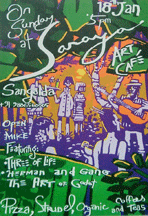While the traditional Indian Calendar is based on lunar positions, Sankranti is a solar event. So while dates of all Hindu festivals keep changing as per the Gregorian calendar, the date of Makar Sankranti remains constant over a long term, 14 January. Makar Sankranti is celebrated in the Hindu Calendar month of Magha.
Makar Sankranti is a major harvest festival celebrated in various parts of India. According to the lunar calendar, when the sun moves from the Tropic of Cancer to the Tropic of Capricorn or from Dakshinayana to Uttarayana, in the month of Poush in mid-January, it commemorates the beginning of the harvest season and cessation of the northeast monsoon in South India. The movement of the earth from one zodiac sign into another is called Sankranti and as the Sun moves into the Capricorn zodiac known as Makar in Hindi, this occasion is named as Makar Sankranti in the Indian context. It is one of the few Hindu Indian festivals which are celebrated on a fixed date i.e. 14 January every year.
In India it is known by different regional names
Makar Sankranti or Sankranti - Andhra Pradesh, Bihar, Goa, Sikkim, Jharkhand, Karnataka, Kerala, Madhya Pradesh, Maharashtra, Manipur, Orissa, Uttar Pradesh, Uttarakhand, West Bengal and Uttarakhand.
Uttarayan- Gujarat and Rajasthan
Maghi - Haryana, Himachal Pradesh and Punjab
Pongal - Tamil Nadu
Magh Bihu or Bhogali Bihu - Assam Valley
Shishur Saenkraat - Kashmir Valley
Makara Vilakku Festival - Sabarimala Temple (Kerala)
In the western Indian state of Gujarat, the celebrations are even bigger. People offer thousands of their colorful oblations to the Sun in the form of beautiful kites. The act stands as a metaphor for reaching to their beloved God, the one who represents the best. In the rural and coastal areas, cock fights are held and is a prominent event of the festival. Makara Sankranti is also to honour, worship and to pay respect to Saraswati (Goddess of Knowledge). At the start of this significant event, there is also worship for the departed ancestors.
On the day after Makar Sankranti, the animal kingdom is remembered and in particular, the cows. Young girls feed the animals, birds and fishes as a symbol of sharing. Travel is considered to be inappropriate, as these days are dedicated for re-union of the families.
People in Coastal Andhra do not eat any meat or fish during the first three days of the festival, and do so only on the day of Mukkanuma, where as people in Telangana region observe only the first two days as part of the festival and eat any meat or fish on Makara Sankranti (Pedda Panduga), the second day of the festival. For this festival all families prepare Ariselu, Appalu (a sweet made of Jaggery and Pumpkin) and make an offering to God.
Gujaratis keenly await this festival to fly kites. In India the generic name for a kite is 'Patang'. These kites are made of special light-wight kite paper and bamboo and are mostly rhombus shaped with central spine and a single bow.
In Maharashtra on the Makar Sankranti (मकर संक्रान्ति) day people exchange multi-colored halwa (sugar granules coated in sugar syrup) and til-gul ladoos (sweetmeats made from sesame seeds and jaggery). Gul-polis (flat bread stuffed with jaggery) are offered for lunch. While exchanging tilguls as tokens of goodwill people greet each other with the words, "Til-gul ghya, god god bola" meaning ‘Accept these tilguls and speak sweet words’. The under-lying thought in the exchange of tilguls is to forget the past ill-feelings and hostilities and resolve to speak sweetly and remain friends.
This is a special day for the women in Maharashtra when married women are invited for a get-together called ‘Haldi-Kunku’ (literally meaning turmeric and vermillion) and given gifts such as utensil, clothes etc. Typically, women wear black sarees or black coloured outfits on this occasion. The significance of wearing black is that Sankranti comes at the peak of the winter season and black colour retains and absorbs heat, helping keep warm. Read More
| < Prev | Next > |
|---|
















